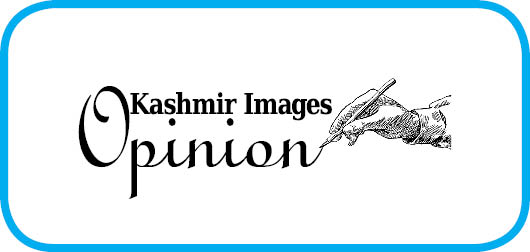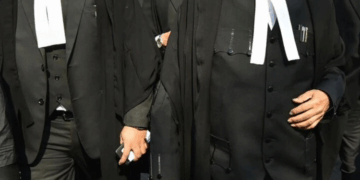The human tragedy unraveling in Lebanon could be blamed upon its corrupt politicians but its roots lie deep within the Lebanese sectarianism.
While the world it seems has been too occupied with developments in Afghanistan, another tragedy in making is currently on in Lebanon. A country facing one crisis after another.
However, the crisis is Lebanon is not new, it’s decades old but has worsened in the last two years due to sectarian politics and corrupt politicians, bankers and bureaucrats. The on-going economic crisis has worsened as the coronavirus pandemic took hold in 2020, followed by the devastating explosion in
Lebanon’s capital Beirut on August 4 last year, which has been described by experts as “one of the biggest non-nuclear explosions in history”.
Following the Beirut explosion, the crisis worsened exponentially. According to The New York Times, the price of consumer goods has “nearly quadrupled”, leaving people with barely any access to necessities like food and medicine. Some healthcare companies have run out of medicines “needed to treat cancer and heart disease” as a result of the country being unable to procure products from foreign importers.
Fuel has become scarce in Lebanon due to the lack of foreign currency to pay energy suppliers, leading to the closure of power plants, hospitals, and water pumping stations. As a result, civilians have been left without electricity and clean water, as well as the ability to heat or air-condition their homes. And those who want to leave are stuck, as there’s no fuel available to fill their vehicles.
The on-going crisis has left almost half of Lebanon’s population living in poverty, and has prompted more mass protests to remove the political elite “accused of corruption, mismanagement, and negligence,” Reports BBC News.
In a statement UNICEF stated: “The needs are massive, and the urgent formation of a new government with clear commitments to reform, is critical to tackle the current crisis through determined and systematic action to protect children’s lives and ensure access to water and all basic services.”
Lebanon is at the onset of a serious collapse, Najat Rochdi, the United Nations deputy special coordinator for Lebanon, warned in an interview with the Italian newspaper Efe.
She said, “I am not talking about a theoretical scenario that maybe in a few months if nothing gets done the situation is going to collapse. No! We are talking about a serious beginning of a serious collapse and the people are paying a very high price today.” The “only solution, the only way to save Lebanon, to save the Lebanese and to save the country is with reforms,” she added.
Lebanon’s political scenario
The crisis-battered country has been run by a caretaker government for more than a year due to a lack of political consensus, making it impossible to carry out necessary economic reforms the international community demands from Lebanon.
Lebanon is heading toward more “chaos and poverty” if a government is not formed immediately, a Lebanese lawmaker warned, with the end of this week marking 13 months since the resignation of Prime Minister Hassan Diab’s administration.
Diab stepped down in the wake of the Aug. 4 port blast last year that devastated the capital, but he has stayed on in a caretaker capacity. President Michel Aoun’s term ends in October next year, while parliament’s term ends next May.
On whether the president would seek to remain in power after the end of his term as he did in the 1980s, Vice president of the Future Movement, Mustafa Alloush, told Arab News newspaper that “Aoun will not repeat his experience of fleeing from the presidential palace. He is concerned with passing on politics to Gebran Bassil, his son-in-law, and giving him a clear share in the next formulation of authority.”
As new Lebanese secular political groups are struggling to organise before the 2022 elections, the sectarian parties are using populist discourse and aid politics to secure the support of their constituencies.
Criticism is quite rare among the Lebanese who still support the sectarian political factions that have been in power since the 1990s. According to the researchers and political analysts, despite the vocal social anti-corruption movement that has emerged after October 17, 2019 and the recent wins the “thawra groups” have scored in university student councils elections and syndicates, many Lebanese still support the establishment parties.
Being sectarian in design, the political class has played on sectarian sentiment since the civil war. Amal Movement was the defendant of the “deprived Shiites”, while the Free Patriotic Movement’s minister Gebran Bassil presents himself as the protector of “Christian Rights” in his political statements.
Members of new political movements born from the October 2019 protests say that the “Us vs Them” narrative helps distract attention from the real issues at hand – corruption and impunity.
For example, politicians in Christian, Druze and Sunni parties claim Iran as their opponent and Western countries as friends. On the other hand, Hezbollah and its allies claim Israel as an opponent, look at Western states, especially the US, as friends of Israel and accuse them of imposing a blockade on Lebanon, as the fuel crisis in the country deepens.
Meanwhile, Prime Minister-designate Najib Mikati has been able to cobble together a 24-member cabinet after negotiating with President Michel Aoun last week, a line-up that is satisfactory for everyone, including an international community that wants sectarian factions to divide portfolios and name a technocratic government.
Hopes are high, but expectations are low. Sectarian political factions have been negotiating on who gets which portfolio, but Mikati admitted last month that the conversation has been less about plans for reforms and policies to recover from the economic crisis, and were focused on who gets what.
The author is a political commentator based in New Delhi.





